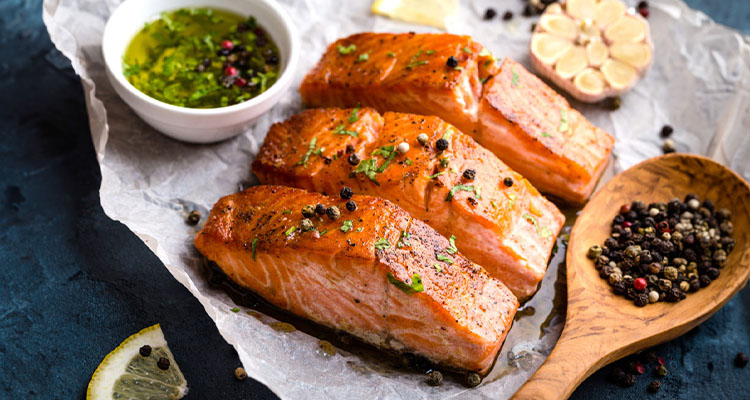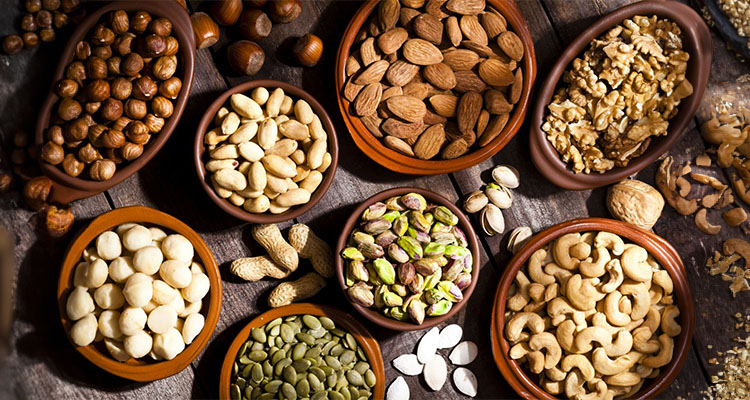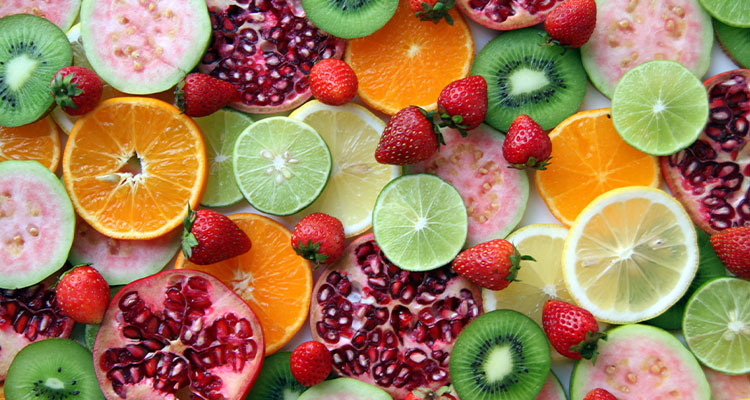In today's fast-paced world, maintaining our brain health has become crucial than ever. As we juggle work, family, and other commitments, it's easy to overlook the importance of nourishing our brain to support cognitive function and overall wellbeing. Hence, we need to look into the food we eat daily as this has a direct impact on our brain health.
Fortunately, certain foods have been shown to contain essential nutrients and compounds that support and even boost brain health. In this article, we'll explore six key food groups, also known as "brain food", that are known to nourish the mind, enhance cognitive performance and improve our overall brain health.

Did you know that more than 50% of our brain consists of fat, and half of that fat comprises omega-3 fatty acids? That’s why we need to ensure our diet contains fatty or oily fish such as salmon, Indian mackerel (ikan kembung), anchovies (ikan bilis), and sardines, which are rich sources of omega-3 fatty acids, particularly EPA (eicosapentaenoic acid) and DHA (docosahexaenoic acid).
These essential nutrients play a critical role as the building blocks of the brain in improving brain function, supporting cognitive function and reducing the risk of cognitive decline. Incorporating them into your diet, whether grilled, steamed, or in a hearty fish curry, is an excellent way to support optimal brain function.

Coffee and tea are beloved beverages in Malaysia, known for their ability to provide a mental boost by improving alertness, performance, memory and focus, whether it's to kickstart the day or get out of the post-lunch slump. Both beverages contain caffeine and antioxidants, beneficial compounds which has been shown to improve concentration, cognitive function and support overall brain health.
In addition, tea, especially green tea, is rich in antioxidants called catechins, which may help protect brain cells from brain damage, including mental decline, and reduce the risk of neurodegenerative diseases. Enjoy a cup of coffee or tea as part of your daily routine to enhance alertness and support brain health, especially when enjoyed with little to no added sugar.

Malaysian cuisine is renowned for its vibrant flavours, thanks in part to the use of herbs and spices like turmeric, ginger and lemongrass. These aromatic ingredients not only enhance the taste of Malaysian dishes but also offer a range of health benefits.
Turmeric, for example, contains curcumin, a compound with powerful anti-inflammatory and antioxidant properties that may help protect against neurodegenerative diseases like Alzheimer's.
Learn more about how you can incorporate local spices into your cooking and adopt a healthier Malaysian diet from our previously published series of articles entitled A Healthier Diet For Malaysia.
_are_nutritional_powerhouses_that_offer_a_wide_range_of_health_benefits.jpg)
Green leafy vegetables such as spinach, kale and water spinach (kangkung) are nutritional powerhouses that offer a wide range of health benefits, including support for brain health.
These vegetables are rich in vitamins, minerals, and antioxidants that help reduce inflammation, protect against oxidative stress, combat against free radicals, and support the growth of new brain cells. Whether enjoyed raw in salads, sautéed as a side dish, or blended into smoothies, green leafy vegetables are a versatile and nutritious addition to any diet.

Nuts and seeds are essential brain foods that are high in protein, which are needed to support neurons in communicating with each other and is essential for providing a wide range of brain health benefits.
Almonds, walnuts, pumpkin seeds, and chia seeds are particularly rich in vitamins, minerals, healthy fats, and antioxidants that support cognitive function and protect brain cells from damage, which may result in memory loss or brain fog.
Enjoyed as a snack, sprinkled over salads, or blended into smoothies, nuts and seeds provide a convenient and nutritious way for busy Malaysians to boost their brain health.

Vitamin C-rich fruits such as oranges, strawberries, guavas and kiwis are not only delicious but also beneficial for brain health. Vitamin C is a powerful antioxidant that helps protect brain cells from damage caused by free radicals. Adding these fruits to your diet, whether having it fresh, juiced, or in smoothies, can help support overall brain health.
In summary, incorporating brain-boosting foods into your diet doesn't have to be complicated. By enjoying a variety of whole, nutrient-dense foods rich in omega-3 fatty acids, antioxidants, vitamins and minerals such as these six recommended “brain foods" as part of a balanced diet, you can nourish your brain health, support cognitive function and enhance overall wellbeing.
References:
This article is contributed by
Georgen Thye, Consultant Dietitian
BSc. (Hons.) Nutrition and Dietetics, IMU
Council Member of the Malaysian Dietitians' Association (2021-2023)